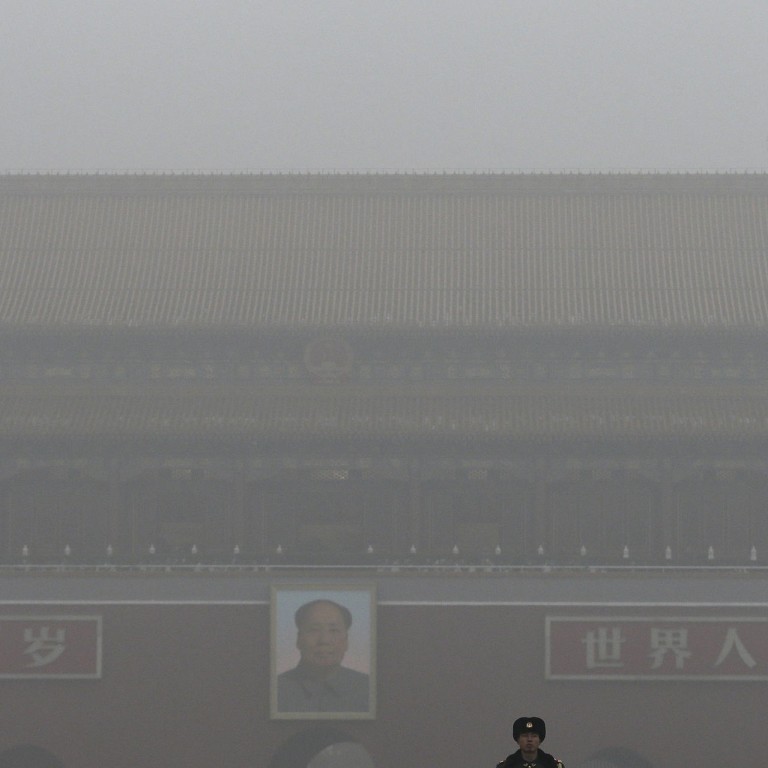
Despite smoggy reality at home, China wins praise in Paris for 'green projects'
While Beijingers choked and tried to find their way through the capital's smog, Chinese representatives were in Paris trying to promote the country's "green projects" at the global climate-change conference.
While Beijingers choked and tried to find their way through the capital's smog, Chinese representatives were in Paris trying to promote the country's "green projects" at the global climate-change conference.
As the climate summit inched towards its halfway point, producing a working text for ministers to decide on deeply contentious issues and reach a global deal to tackle climate change beyond 2020, Chinese negotiators and officials spent the first week trying to put a positive spin on China's "constructive" role - and were quite successful.
China's newfound position somewhere between the rich-poor divide has given it much more room for manoeuvring. With its offer to peak carbon emissions by 2030 and of US$3.1 billion to help vulnerable developing nations, the country seems to have gained a better position to ask for what its wants, while protecting its own Achilles' heel.
On Thursday, China joined other developing countries in mounting harsh criticism of industrialised nations trying to escape their funding obligations for poor countries.
Chinese officials, researchers and entrepreneurs were joined by some international organisations at the China Pavilion in cheerleading the country's green progress and ambitions.
Even the French foreign minister, Laurent Fabius, praised China for having "so far played an extremely positive role".
But as negotiations enter the ministerial-level debates starting tomorrow, China is expected to be pushed on issues it feels not so comfortable with: the international scrutiny and review of its pledged domestic efforts to rein in carbon emissions.
The United States and other developed countries have pushed for enhanced transparency rules that allow international scrutiny on whether nations are delivering on their pledges.
Su Wei, China's chief negotiator, said the country agreed to "enhance transparency", without elaborating. But observers say that if pressed on its domestic plans, China could push back by demanding scrutiny for how the rich give financial support to poor nations.
China has always held that any reviews of a country's domestic actions should not be "intrusive", nor should it bear any punishment, as the transparency issue has been viewed by Chinese officials as an issue of sovereignty. And observers say China is unlikely to budge on the transparency issue this week.
While climate negotiations are largely about diplomatic wrestling, the reluctance to put in place a sound transparency system to track green goals at home could well explain why the country's smog crisis just won't go away.
Photos of Beijing's smog last week - widely circulated on social and international media - never reached Le Bourget, the exhibition centre where the Paris climate talks are being held.
At an event at the China Pavilion, a preview of speeches successfully screened out any mention of pollution woes, the was told by an NGO staff member.
If Chinese climate officials are really serious about the country's image in climate talks, they should know that the widening gap between the way China portrays itself and what actually happens at home needs to be bridged.

